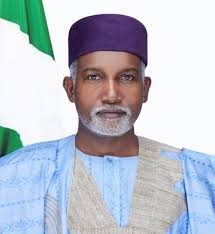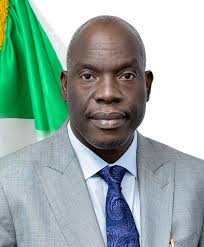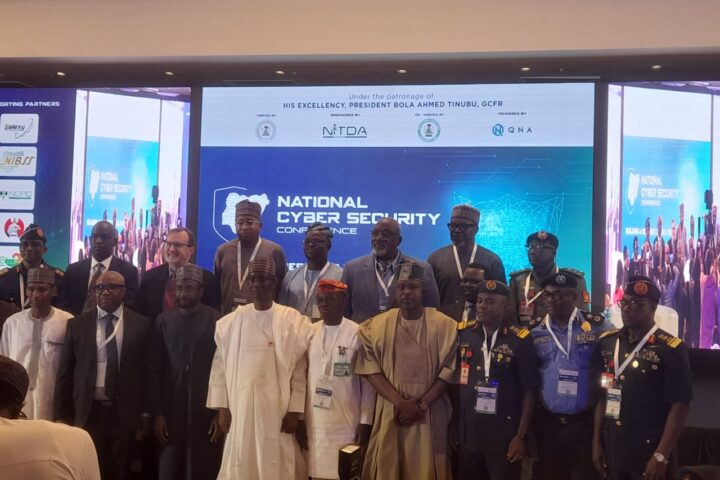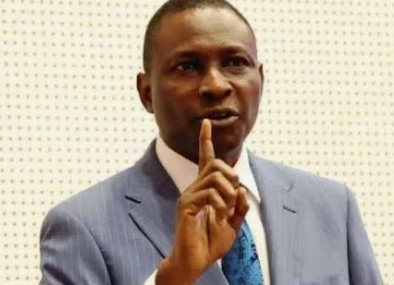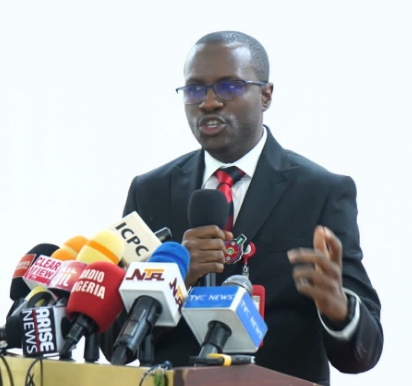In this exclusive interview with PREMIUM NEWS, Nnimmo Bassey, Director,Health of Mother Earth Foundation(HOMEF), gives an insight into the ills besetting the nation’s oil and gas issues and proffers how best to free same from age-long challenges.
Excerpts:
The country is in an era of deregulation and still importing fuel and government claims it’s expending N120bn on subsidy monthly. What is the economic sense in this and what should the country do to harness the full benefits of deregulation?
The problem with this scenario is not really that the government is spending N120bn monthly on fuel subsidy. The fundamental issue is that Nigerians do not believe that there is any subsidy whatsoever. Doubts arise because the same government had claimed it had stopped paying subsidies and that they were running a market-based pricing system. In fact, in 2020 the government claimed that the Petroleum Products Pricing Regulatory Agency (PPPRA) had been authorized to end fuel subsidy. The agency also announced that they put that into effect in March 2020. This explains why the pump price of petrol went down in March and May that year. If subsidies had ended a year ago, when did they restart? Something is not clear here and the government owes Nigerians a duty to be transparent, coherent, and consistent on this matter. Labour and others have asked to know how much it costs to refine a litre of petrol so we can all see what we are paying for and why.
What is the prospect of Nigeria developing alternative to oil now that the world is championing low consumption of oil and encouraging use of electric cars?
Nigeria and other African countries are in a rather paradoxical situation. The imminent shift from polluting petroleum energy sources is predicated on the fact that the burning of fossil fuels is essentially setting the planet on fire through climate change. The paradox is that we have contributed little or nothing to global warming through the stock of greenhouse gases in the atmosphere. Indeed, while the USA and most of Europe each account for a hefty 30 percent chunk of the greenhouse gases, Africa barely contributes 3 percent. If certain African countries are removed from the equation, many countries would be responsible for infinitesimal contributions to the problem. Yet, it is essential that every nation takes climate action, although the heavy polluters must do their fair share.
While we insist that the justice principle of Common but Differentiated Responsibilities (CBDR) must prevail at every juncture with regard to climate action, Nigeria cannot afford to glory in being stuck in the barrel of oil simply because we contribute little or nothing to global warming. The reticence we often see from poor vulnerable countries comes from the massive financial outlays needed to tackle the menace through adaptation and mitigation measures. This can be overcome if our politicians demand payment of climate debate, or a more composite ecological debt, to recover the costs of the plunder and repairing the despoliation inflicted on the continent through years of destructive and irresponsible exploitation. Climate debt would provide far more funds than the Green Climate Fund currently in the multilateral climate regime. Climate debt would provide resources to build resilience, free our nations from debt and yank the beggars bowl from our hands when we go for climate negotiations. So, it is not whether Nigeria should stay stuck with dirty fossil fuel energy, the key is for the nation to do what is essential for her to provide the best environment for her people, create access to energy, promote wellbeing and ensure the dignity of our peoples.
The Port Harcourt refinery rehabilitation will cost the country $1.5bn amidst controversy over its cost and the intent of the government. What do you think should be done to the refinery and others?
Only the incurable optimist would believe there is good sense in dumping $1.5bn into the repairs of the Port Harcourt refinery. The refineries have been national embarrassments with commentators saying that about $25bn has been spent in turn around maintenance of the moribund refineries in the country with not a drop of refined product to show for the investment. Nigerians are not convinced that this quantum of investment will bring a different outcome. Nigeria needs a rebooting. A system that neither promotes patriotism nor utilizes the best capacities available but rather thrives on cronyism laced with a hefty dose of corruption will not produce a positive result. What should be done to the refineries? Place them in a parking lot. Reboot the nation. Rebuild a sense of nationhood. Promote creativity and industry. Then take a look at the derelict contraptions.
The Federal Government recently said it is integrating artisanal and modular refinery operations into the oil and gas sector in order to curtail illegal oil activities in the Niger Delta region. How do think this action is achievable?
The modular refineries idea is a reaction to the rise of bush refineries that have become a source of troubling pollution in the Niger Delta. What is not being considered is that the bush refineries operate on cheap basic ogogoro technologies while the cost of the modular refineries, even if current artisanal refiners were to come together in cooperatives, may be beyond their reach. This is where the government ought to invest in our social and technological research institutions and get them to study the conditions that brought us to where we are and what are the best ways forward. Rather than import modular refineries from outside Nigeria, one would expect the government to support our research institutes to design and fabricate the needed modular refineries bearing in mind the socioeconomic conditions, costs, and environmental concerns. A few years ago, engineers at Ahmadu Bello University, Zaria, announced that they had designed and fabricated a refinery. What happened to that output? Engineers in thedefunct Biafra were able to build refineries and put them to use. What happened to their ingenuity? The current bush refiners with the ogogoro technology are producing refined petroleum products of higher quality than the poor-quality petroleum products currently being imported into the country at great cost. What lessons are being gained from these?
You were quoted as saying that Nigeria should stop awarding oil blocks and concentrate more on the environment. What warranted your advocacy against the action that had given Nigeria huge revenue for years?
Nigeria’s addiction to petroleum resources as the main revenue source is rooted in colonial extractivist logic and if we are not careful the alternative would be in the same mold. You hear people quickly pointing at agriculture as the alternative revenue source while having in mind the same colonial plantation production system. Focusing on halting oil theft and cleaning up the entire Nigerian environment would be the best approach to revitalizing not just the people but the economy. An environment that is patently contaminated across the board denies people a modicum of dignity and self-respect. A contaminated environment directly impacts the health of the population as well as overall life expectancy. The converse is the case when you have a clean environment. Embarking on remediating the Nigerian environment would generate massive employment and task the inventive creativity of the people. A clean environment – rivers, land and air – would also positively affect food production and block efforts to introduce risky genetically modified seeds and foods.
Stopping oil theft would add about 50-100 percent more revenue from the petroleum sector. So, the issue is not about issuing more licenses or more oil blocks except we are happy to issue licenses for more wastage and theft. We have it record that up to 400,000 barrels of crude oil are stolen daily in the Niger Delta. This is approximately equal to the combined installed capacity of the three refineries in the country. This means that those who point accusatory fingers at poor villages scooping crude oil with buckets when there is an oil spill are playing the ostrich and avoiding the fact that the theft in the region is an industrial activity with international tentacles. So, if we want to double oil revenue, the thing to do is to stop oil theft. This is a win-win proposition. Stopping oil theft stops criminality and corruption. It also saves the environment from more pollution.
One of the actions government took against the needless gas flare in Nigeria was the gas flare commercialisation programme and adjustment of gas flare penalty. Nigeria lost N439bn to gas flare last year despite the program. What are your worries about this and how do you think Nigeria can achieve zero flares?
As long as crude oil is being extracted here there will be associated gas and zero flares will not be achieved. The criminal activity is not gas flaring per se, but routine gas flaring. Gas flaring can be needed as a safety measure or to reduce pressure from wells, but to simply burn the gas 24/7 for decades is totally objectionable and irresponsible. It is an ecological as well as economic crime. It is ecocide, an ecological crime in the same range, or worse, than war crimes, crimes against humanity, and other unusual crimes.
Gas flaring began under colonial rule when the wellbeing of the colony’s environment and people were not on the priority list. The focus was exploitation and domination. It continued under the neocolonial situation and was consolidated under autocratic military rule even though the practice was outlawed under their watch in 1984. The option for oil companies to pay minuscule fines where they flare gas was a license to continue flaring. Routine gas flaring will end when the government ceases to partner with polluters in polluting actions and when the penalty for gas flaring is equal to the economic cost of the flared gas plus the environmental and health impact on the communities. In other words, although we cannot pay for the health of the people, the fine should be at least four times the economic cost of the flared gas.
The Federal Government recently filed suit against IOCs over short remittances of revenue. We also witnessed the action of Aiteo against a multinational oil company over allegation of oil theft. There are other moves against the IOCs in the Niger Delta. What are your concerns over this development?
Concerns about the development? These are positive developments. There is a vital need for the disruption of the unholy matrimony between the government and the oil companies. A complicit polluter cannot be a regulator. If a Nigerian company accuses a multinational oil company of oil theft, we should pay attention. The accusation should be thoroughly investigated. Indeed, Nigeria is ripe for a national conference on oil theft. Who are the thieves and how come massive plunder is going on in a totally militarized Niger Delta and no one is seeing what is going on? What lessons were learned from the incident in which a ship loaded with stolen crude escaped from a Lagos harbor while in the custody of the Navy in 2004?
Nigeria has declared a decade of gas. How far can the country go to power the economy with revenue from gas and boost domestic consumption of the asset? What are the prospects of achieving this especially against the backdrop that consumption of gas is still low while its flare is on the high side?
Decade of gas sounds good, but I would prefer we call it a decade of fossil gas. We wrongly call the gas natural gas whereas it is a fossil and not natural gas. President Jonathan announced the gas revolution and there was no revolution. The current president, General Buhari, has announced a decade of gas and I think the declaration could be on target as this may end up being the decade in which dependence on fossil gas and other fossil fuels will rapidly decline. It should be a decade, not for celebrating an economy booming on fossil fuel resources, but a decade to map out strategies and move rapidly away from this resource. Do not forget that fossil gas is very harmful to the climate.
One of the loud views expressed during the recent public hearing on the Petroleum Industry bill was the need to increase the meagre 2.5% Host Community Fund to 10 percent. Would you say Nigeria is good to go with a law that would bring in more investors and engender transparency in line with international best practices?
The way the PIB has been handled over a period of about a decade is shameful. The provisions for Host Communities have been used as a smokescreen to scuttle the process and forge another unjust petroleum sector law. The “Host Communities” concept itself is problematic, because rather than pursuing inclusive development in the Niger Delta the concept brings up groupings that are divisive and gives the upper hand to the corporations and the complicit state. Truth is that every community in the Niger Delta is a host community. Pollution does stop at where petroleum infrastructure is located. Pollution from one location does spread to creeks and rivers in areas where there are no pipelines or oil wells.
By pronouncements of oil company officials in 2010, it was clear they want a PIB that would enhance their profit margins and would not accept anything that seeks better benefits for the people. They do everything possible to scuttle any people-friendly law.
The provisions for Host Communities in the current PIB are very insulting. The provisions are constructed as allowances to be administered by oil corporations. It is very insulting for Nigerian legislators to accord oil companies the duty of determining who a host community is. Even colonial lords would not contemplate that nonsense. Even the community boards to administer the funds are to be populated or controlled by the oil companies, the very entities who have committed crimes against our peoples and our environment. Are we serious? The PIB is set to kindle divisions and conflicts as prefaced by the sad incident from the so-called public hearing held in the NASS — which properly termed would be called oil company hearing as the communities were silenced, side lined, and insulted.
The Department of Petroleum Resource had recently introduced the National Production Monitoring System as part of the measures to stem crude oil theft in the country. How would you access this system and what should Nigeria do to accurately account for crude oil production and discourage theft?
The best answer to the move by the DPR is the one recently given by NEITI which stated the fact that the country does not know how much oil is extracted in Nigeria’s offshore fields. What that tells us is the lack of transparency of the corporations and the fact that figures they bandy about should not be trusted. Remember the Bonga offshore oil spill of 20 December 2011. During that incident Shell claimed that they pumped 40,000 barrels of oil into the sea believing they were pumping the stuff into a vessel. That level of carelessness offshore says something all on its own.
Beyond the concerns about offshore operations, it is also known that our oil fields are not properly metered as to allow independent verification of figures. This is why oil theft is entrenched. If you don’t know how much oil is extracted it means the export figures can be questioned. Installing a proper metering system is not rocket science and there are countries that would possibly be willing to assist with the technology in that aspect. It would be good to know if government tracks the records of quantities of crude loaded in Nigeria and discharged abroad. Do they match? If they don’t match, do the quantities swell offshore due to seawater intrusion?
You were passionate about Ogoniland’s clean-up and restoration. What is the state of the clean-up now?.Are you satisfied with the ongoings there?. What else do you think should be done to bring back Ogoniland from age-long environmental despoliation?
The clean-up of Ogoniland is a test case for the entire Niger Delta. Some of us have been deeply concerned and believe that everything must be done to ensure that it succeeds. The full restoration of the Ogoni environment will take a lifetime. That of the entire Niger Delta will take a couple of lifetimes. Some people may say it will take just 30 years to get the Ogoni environment restored. That is optimistic and a level of restoration can be attained by that time if we succeed in halting new pollutions. We need an intergenerational commitment to ensure that future generations can survive and thrive in the territory.
I have always said that the Ogoni clean-up is a learning experience, a foundational exercise. We agree that we cannot stay at the foundation forever. Now is the time to see more speed. There are new boards in place and the project office is apparently equally undergoing re-jigging. I served in the initial Board of Trustees and saw that it took a lot of push to get the corporations and the NNPC to contribute what is in the kitty at present. What the BoT always told them was that contribution of funds was set to be done annually and was not dependent on whether funds previously contributed had been depleted or exhausted. That position should be maintained so that as the clean-up progresses there will not come a time when funding would become the bottleneck. It may also be necessary for the government and HYPREP to realize the complexity of the tasks ahead and allow companies with proven track records elsewhere to join the rescue bid. This is an environmental rescue mission and when emergencies of this nature occur waiting for competence to come from locally registered companies may not be the best approach.
The world is engrossed with new challenges posed by climate change and other environmental needs. Would you say Nigeria is ready for these challenges?
No country is ready for the new challenges. For example, we have seen how no country was ready for the COVID-19 pandemic. Sadly, global cooperation is also at a low ebb. Even the vaccine matter has been marred by xenophobic nationalism at a time when there should joint efforts to tackle the menace.
We see the same lack of cooperation when it comes to climate action. Countries are busy making promises of how they would reduce emissions by 2050 and by the turn of the century. What makes politicians think the world has so much time to play around with? It is as though we do not see that communities and territories are already being trashed by unusual floods, droughts, cyclones, and hurricanes.
As habitat degradation continues through deforestation, industrial plantation agriculture, and the promotion of untested, unregulated, and risky extreme techno-fixes, we can expect more pandemics and more environmental changes.
Nigeria has good climate policies and hopefully, a climate change law may come into play. We had a promise in 2019 by the president that 25 million trees would be planted in Nigeria, but we are yet to know how much has been achieved since the pledge was made. We also need to see if our portion of the Great Green Wall is planted with indigenous trees protected by the local communities and if security conditions have allowed the belt to thrive. There are many other things that would point at our readiness to contribute to tackling global warming. These include halting gas flaring, supporting agroecology, and vastly intensifying the provision of power by way of renewable sources.





